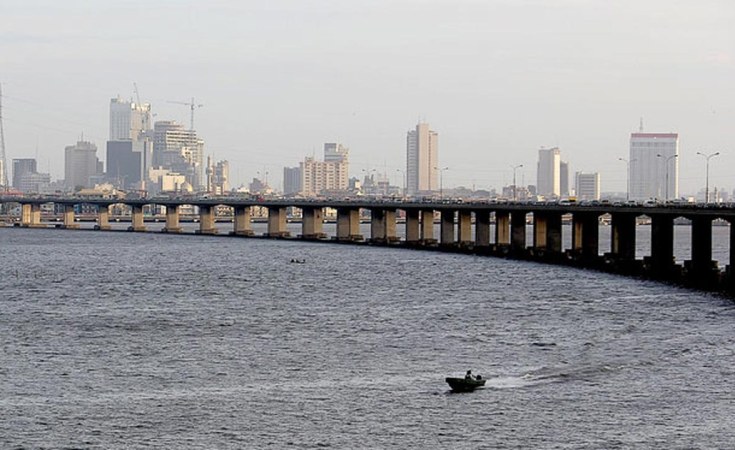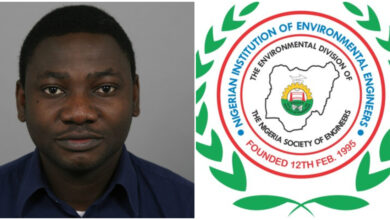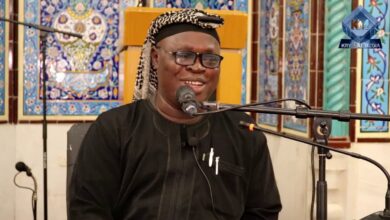Members of the Lagos Chapter of the Nigerian Institution of Environmental Engineers, have met to brainstorm ways to preserve the state’s Lagoon for future generations.
The experts put heads together at the June 2024 Technical Session of the NIEE Lagos chapter entitled ‘Industrial Pollution Control as it Affects the Lagos Lagoon’. The programme was held on Wednesday, June 19.
Speaking at the event, Engr. Yusuf Oladimeji Majolagbe, the Chairman of the NIEE in Lagos noted that the topic is one of the most pressing environmental issues affecting Lagos.
TOP MEDIA NIGERIA reports that Lagos Lagoon — spanning approximately 635 square kilometres — is a vital ecological and economic asset for Nigeria’s most populous city. It has long been a source of sustenance and livelihood for millions, providing essential resources such as fish, water for domestic use, and a means of transportation. The lagoon supports a rich diversity of marine and bird life, playing a crucial role in maintaining regional biodiversity.
Majolagbe said:
“However, in recent years, the lagoon has come under severe threat from industrial pollution.
Studies have shown that industrial discharges, untreated effluents, and chemical run-offs have significantly degraded water quality.”
Citing a 2018 report by the Nigerian Institute for Oceanography and Marine Research, the Lagos NIEE helmsman lamented that over 75% of the industrial effluents released into the Lagos Lagoon exceed permissible limits for pollutants such as heavy metals, oil and grease, and suspended solids.
He continued:
“Today’s session is an opportunity to delve into the complexities of industrial pollution control, share insights, and explore innovative solutions to safeguard our lagoon.”
Furthermore, Majolagbe disclosed that the experts’ discussions cover understanding the sources and impacts of industrial pollution, which he said is crucial for effective control.
He also referenced a 2021 study by the Lagos State Environmental Protection Agency (LASEPA) which, according to him, found that industrial activities along the lagoon’s shoreline contribute to over 60% of its total pollution load, with significant inputs from the manufacturing, oil, and chemical industries.
Majolagbe added:
“We hope to explore the latest advancements in pollution control technologies. Modern wastewater treatment processes, such as membrane bioreactors and advanced oxidation processes which have shown promise in significantly reducing industrial pollutants.”
How to control industrial pollution
As shared by Majolagbe, effective legislation and stringent enforcement are key to controlling industrial pollution.
He noted that current regulations, such as the National Environmental Standards and Regulations Enforcement Agency (NESREA) Act, provide a framework for pollution control, “but enforcement remains a challenge”.
The environment specialist pointed out that strengthening these frameworks and ensuring strict compliance is crucial for making meaningful progress, adding that protecting the Lagos Lagoon is a collective responsibility.
He explained:
“Engaging local communities, raising awareness, and empowering citizens to participate in pollution control efforts are essential. Educational campaigns and community monitoring programs have been successful in other regions, and similar initiatives could be adapted here.
“Learning from successful case studies around the world can provide us with valuable lessons. For instance, the restoration of the Chesapeake Bay in the United States through coordinated pollution control efforts offers a blueprint for similar initiatives in Lagos.”
Calling on his colleagues to seize the opportunity of the technical session to make a difference, Majolagbe asserted that cooperatively, environmental experts can ensure that Lagoon remains a vibrant and healthy ecosystem, supporting the diverse life forms that depend on it and enriching the lives of all who call Lagos home.
‘Join hands with us to tackle industrial pollution in Lagos lagoons’, NIEE tells govt
He concluded:
“On this note, we would like to charge the Lagos State Government, Lagos State Parastatals, and private organisations on the need for us to join hands and tackle the menace of Industrial pollution in our Lagoons.
“There needs to be a conscious effort done by the academia to mitigate the ills done by these harmful discharge. And as always the Nigerian Institution of Environmental Engineers Lagos State Chapter would always be ready to partner with any association in the achievement of a Cleaner, Greener and more sustainable waterways for our Centre of Excellence, Lagos State.”





